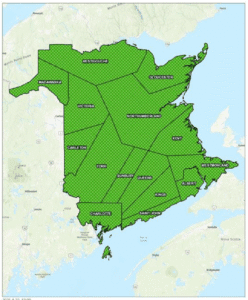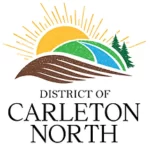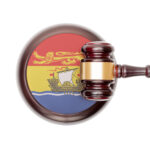‘This isn’t a step forward, it’s a step back’: Catherine Sutherland tells current council members

A former long-time member of Woodstock council urged current councillors to step back from any plans to change the town’s water billing from meter to a levy system.
In a letter read into the record at the Aug. 23 council meeting, Catherine Sutherland stated discussions about changes to the water-billing system aren’t new, but the proposal outlined at the Aug. 9 council meeting raises concerns.
“This isn’t a step forward. It is a step back,” Sutherland said.
The Aug. 9 presentation, available on the town’s website, outlined the current water-meter system’s drain on town resources and funds.
The PowerPoint presentation delivered at the Aug. 9 council meeting by Geraldine Campbell, an accounts receivable administrative staff member, highlighted the benefits of the town replacing its current metering system with a levy flat rate system for residential customers.
The study estimated a savings of $400,000 by not replacing meters over the next three to five years. It also noted compiling water-meter readings takes three town employees an average of three weeks.
In her letter to council, Sutherland said the proposal to switch to a levy system both “surprised and disappointed” her.
“What you’re proposing should be looking to the future,” Sutherland wrote. “Find a metering system that can be read wirelessly, much like NB Power monitors everyone’s power usage. That at least would keep all of us, homeowners, businesses and town staff alike, current and on top of water usage.”
Stressing the importance of water conservation, she said a water levy provides no incentive for homeowners to limit water usage.
The former councillor also raised concern about the proposal’s increased revenue estimates, suggesting that someone will be paying more.
“And if it isn’t homeowners, then you plan to increase what businesses are paying,” she wrote. I”m going to tell you that business is paying all they can afford, and many homeowners are struggling to keep up with the rising costs just to run their households. This is not the time to be increasing water costs.”
Coun. Trina Jones responded to Sutherland’s letter, acknowledging the former councillor raised valid points.
She reminded council members that the proposed plan “is still in its infancy.”
Jones stressed that changes are needed, and revenue is required to ensure ongoing upgrades and water and sewer infrastructure maintenance.
She said New Brunswick, at 66 per cent, has the fewest residents on municipal water in the country, noting eight of 10 provinces are over 90 per cent.
Jones added that only 62 per cent of Woodstock residents currently depend on municipal water supply, which will drop to 38 per cent after amalgamation on Jan. 1.
She quoted statistics suggesting Woodstock residential water users are getting great value.
Jones acknowledged the $626 average price people pay in other New Brunswick communities would mean a significant increase for some residents but suggested the new bylaw could include measures to help seniors and other residents on fixed or low incomes.
While smart metering may provide the fairest distribution of water costs for residents, Jones suggested the town cannot afford the cost.
“The $400,000 spent on smart meters is money we can’t get back,” she said.
CAO Andrew Garnett and Director of Finance Kristin Pelkey said officials from many municipalities told the committee studying Woodstock’s water and sewer billing issues that they regret switching to smart meters.
Coun. Mark Rogers stressed fairness should be a critical point in any billing change, noting he didn’t want to see residents forced to pay the same rate while using half as much water.
Mayor Art Slipp said the town completed a cost analysis of remotely read meters a few years ago. He said the information from that study should be available to council as it considers a water and sewer option going forward.
“It’s not going to be a quick decision,” he said.









